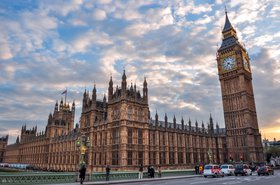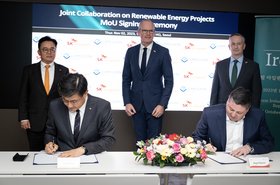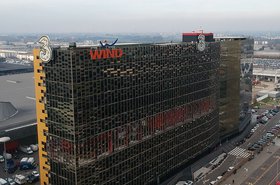Motorola Solutions has been removed from the UK government's list of strategic suppliers months after its exit from the new emergency services communication network (ESN).
As first reported by Public Technology, Motorola Solutions is absent from the updated list of strategic suppliers released last week, which features 39 companies considered to be the government’s biggest or most significant suppliers.
Significantly, this list is one fewer than the previous list published in March, with Motorola being the only absentee.
Since the launch of the list in 2011, Airwave - the company that created the emergency services comms system and was eventually bought by Motorola in 2016 - has always been featured on the list.
The strategic list features several tech firms, including AWS, Microsoft, IBM, Oracle, and Vodafone.
Motorola's removal from the list follows a decision it reached with the Home Office in January to terminate the £400 million ($497m) contract for the delivery of the core voice component of the Emergency Service Network (ESN).
In March, the Home Office revealed it was unsure when the UK government’s 4G-based ESN will be ready after a report from the National Audit Office (NAO) found it could be delayed until 2029 or later. The report revealed that the Home Office paid out £45 million ($56m) to terminate its contract with Motorola Solutions two years early for the delivery of the core voice application for the ESN.
First proposed in 2015, the ESN was meant to have been in use by 2020 for police, fire, and ambulance services in England, Scotland, and Wales.
However, the report found that the turn-off date for the aging Airwave system may be pushed back further after already having been twice extended, first to 2022 and then to 2026.
It's not been cheap either, with the Home Office having spent £2 billion ($2.5bn) on the ESN project so far, while spending £2.9bn ($3.6bn) to keep Airwave going.
Despite Motorola no longer playing a part in the ESN after 2023, the tech firm is still set to be paid more than £300m ($373m) on software that the ESN won't even use, and if the UK is to continue using Airwave up until the end of the decade as expected, this could cost at least £250m ($311m) a year.
In what has been a challenging year for Motorola in the UK, the company has also seen a price cap imposed on how much it can charge the emergency services to use its Airwave radio network.
It was announced last month, following an investigation from the Competitions and Markets Authority (CMA), that Motorola has been forced to reduce by more than £1 billion ($1.25bn) its contracted price for the provision of the UK’s ESN in the coming years.
The CMA stepped in to impose the cap to stop Motorola from enforcing higher costs that are ultimately paid by taxpayers.
According to a post by the government, the price cap puts an end to the estimated £200 million ($249m) per year over-charging, noting that there will be a review held in 2026, but that the cap has been set to apply until the end of 2029.







